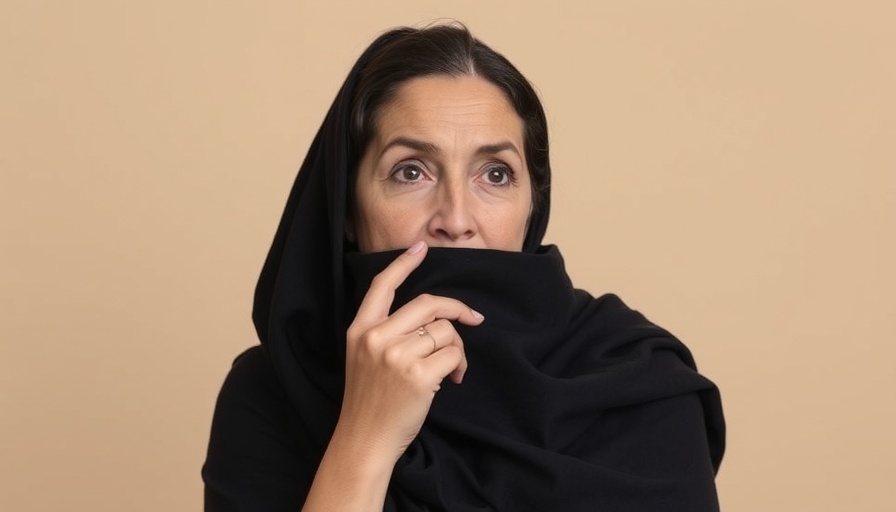
Finding Faith Amidst Fear
In the heart of a society marked by oppression, Somayeh's journey from doubt to unwavering faith highlights the transformative power of belief. Initially armed with skepticism and intent to disprove Christianity, Somayeh's encounter at a church became a pivotal moment. "The presence of God was overwhelming," she recalls, describing her transition as feeling like a "bird released from a cage." This profound experience reshaped her identity and ignited her spiritual exploration, emphasizing the emerging trends of faith flourishing under persecution.
The High Cost of Belief
Somayeh's new journey came at a heavy price. Iran ranks ninth on the World Watch List for religious persecution, and her conversion made her a target. The cultural landscape, with deep-rooted Islam dominating societal norms, rendered converts vulnerable. While historical Christian communities in Iran experience some form of protection, individuals like Somayeh face hostility and violence, particularly when family members react violently to their new faith. Her husband's brutal opposition escalated when he discovered her belief; he resorted to physical abuse, tearing her Bible and threatening her life. Such harrowing ordeals portray the bitter realities of many Christians living in hostile environments.
God's Call to Build Community
Despite the threats and isolation, Somayeh felt a divine prompting to establish a church in her new city. "I want to build a church here in this town," God assured her. From this seemingly impossible directive, a small group of believers formed underground gatherings, marked by secrecy and fear of discovery. Miraculously, their little church thrived despite significant risks, growing to over thirty attendees. They met with careful codes, ensuring their conversations went undetected. These gatherings showcased not just resilience but a profound sense of hope and community, exemplifying how faith can foster connections even amidst oppression.
Fleeing for Freedom
The burgeoning church soon caught the attention of the authorities, prompting Somayeh to make a harrowing decision: it was time to flee. In a heart-wrenching departure, she left behind not only her belongings but also her son, who was bound by military service. Today, she and her daughter reside in a new country, grappling with the challenges of separation and uncertainty. Yet, through every trial, Somayeh remains anchored in her faith, declaring, "His love sustains us, and His guidance strengthens me every day." This resilience reflects the spiritual truths held by many in the face of seemingly insurmountable obstacles.
The Role of Support Networks
Somayeh's story is also a testament to the power of community support. With backing from organizations like Open Doors, she found a new church where her freedom to worship could flourish without fear. This highlights a critical insight: international solidarity and support networks can profoundly impact the lives of those facing persecution. As Christians worldwide advocate for the rights of the oppressed, they help create pathways for others to find hope and security.
What Lies Ahead?
Looking ahead, Somayeh's story doesn’t just conclude in personal triumph; it opens up broader discussions on religious freedom, the resilience of faith, and the vital importance of community in supporting persecuted believers. As she embraces her new life, her narrative invites others to consider their roles in advocating for freedom and supporting those whose voices are silenced. In a world rife with discord, her journey exemplifies how hope can prevail against adversity.
The world watches as stories like Somayeh’s unfold, reminding us that even in darkness, the light of faith and community burns brightly. This call to action not only encourages individual support for persecuted Christians but also highlights the importance of amplifying their stories across platforms to foster understanding and empathy.
 Add Row
Add Row  Add
Add 








Write A Comment